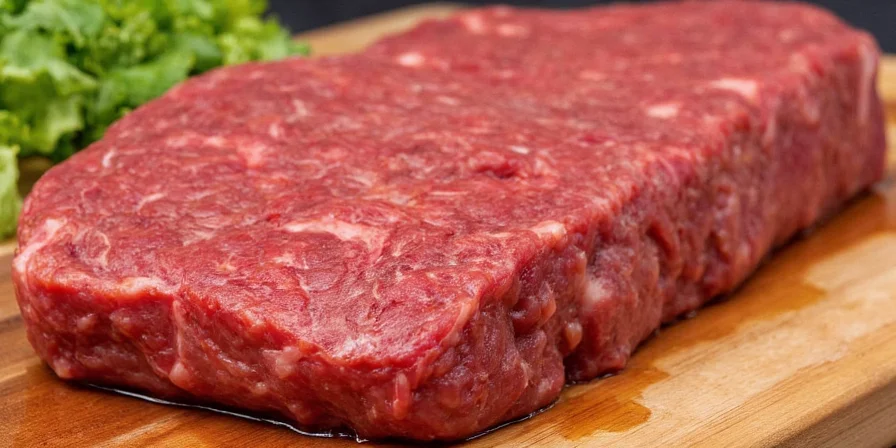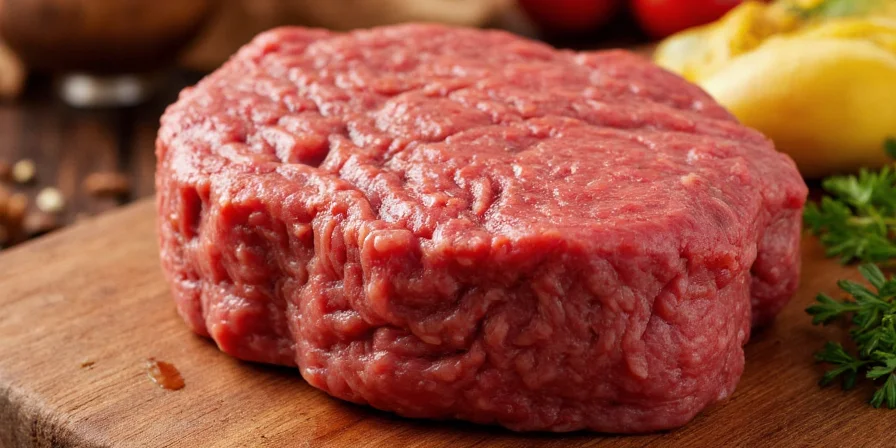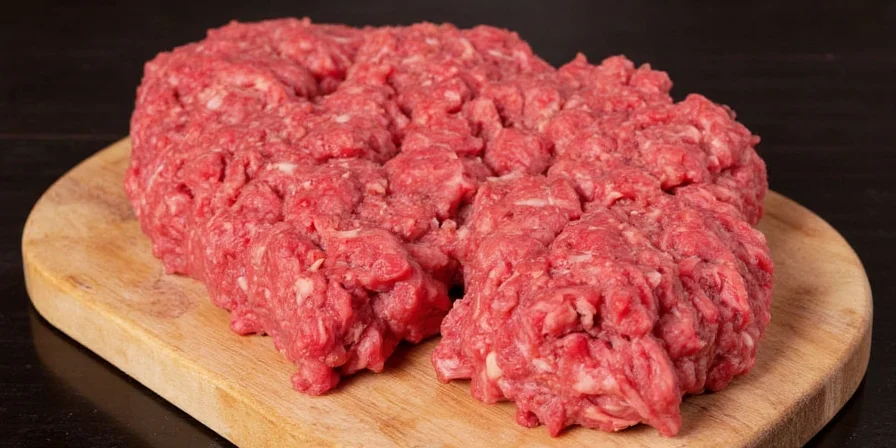Ground beef should be cooked to 160°F (71°C) according to USDA food safety standards. This precise internal temperature eliminates harmful pathogens like E. coli that can cause serious foodborne illness. Unlike whole cuts of meat where bacteria reside only on the surface, grinding distributes surface contaminants throughout the meat, making accurate temperature measurement essential for safety.
This comprehensive guide provides science-based cooking protocols verified by food safety experts. We'll explain why visual indicators fail, demonstrate proper thermometer usage, and clarify critical misconceptions about ground beef preparation that could impact your health.
Why 160°F Is the Non-Negotiable Safety Threshold
Ground beef requires higher cooking temperatures than whole muscle cuts because the grinding process transfers surface bacteria into the interior of the meat. The USDA's Food Safety and Inspection Service (FSIS) established 160°F as the minimum safe temperature after extensive research on pathogen destruction kinetics.

At 160°F, harmful bacteria like E. coli O157:H7 are destroyed within 1 second. Temperatures below this threshold, even with extended cooking times, cannot reliably eliminate pathogens due to the D-value (decimal reduction time) requirements for bacterial destruction.
| Temperature | E. coli Destruction Time | Food Safety Status |
|---|---|---|
| 160°F (71°C) | 1 second | Safe - immediate consumption |
| 150°F (66°C) | 2.8 minutes | Unsafe - risk of illness |
| 140°F (60°C) | 12 minutes | Unsafe - risk of illness |
Proper Thermometer Usage: The Only Reliable Method
Color change is NOT a reliable indicator of doneness. Ground beef can appear brown at 135°F or remain pink at 170°F due to:
- Nitrites in certain seasonings causing pink color retention
- pH variations affecting myoglobin chemistry
- Vegetable additives altering color perception

Thermometer Protocol for Accurate Results
- Insert probe into the thickest part of the meat, avoiding contact with cooking surface
- Wait 10-15 seconds for temperature stabilization
- Check multiple locations in larger batches (bacteria distribution is uneven)
- Sanitize probe between readings to prevent cross-contamination
Cooking Methods and Temperature Verification
Different cooking methods require specific temperature verification approaches:
| Cooking Method | Temperature Verification Tips | Common Mistakes |
|---|---|---|
| Skillet (medium-high heat) | Test multiple meat clumps; temperature varies significantly within batch | Testing only one spot; judging by surface color |
| Oven (meatloaf/burgers) | Insert probe horizontally through center; check edges and center | Only checking top surface; removing too early |
| Slow Cooker | Verify final temperature before serving; slow cooking doesn't guarantee safety | Assuming 'done' after set time; not checking temperature |

Food Safety Risks of Inadequate Cooking
Consuming ground beef cooked below 160°F carries documented health risks:
- E. coli O157:H7: Causes severe abdominal cramps, diarrhea (often bloody), and vomiting. Can lead to hemolytic uremic syndrome (HUS), particularly dangerous for children and elderly.
- Salmonella: Produces gastrointestinal symptoms appearing 6-72 hours after consumption.
- Staphylococcus aureus: Heat-stable toxins can remain even after proper cooking if bacteria were allowed to multiply during improper storage.
The Centers for Disease Control and Prevention (CDC) reports ground beef as a leading source of E. coli infections, with an estimated 265,000 illnesses annually in the United States.
Post-Cooking Safety Protocols
Safety doesn't end at cooking temperature. Proper handling after cooking is equally critical:
- Consume within 2 hours of cooking (1 hour if ambient temperature exceeds 90°F/32°C)
- Store leftovers in shallow containers (no deeper than 2 inches) for rapid cooling
- Reheat to 165°F (74°C) - higher than initial cooking temperature due to potential bacterial growth during storage
- Discard ground beef left at room temperature for more than 2 hours

Frequently Asked Questions
- Why can't I use color to determine if ground beef is cooked safely?
- Color is unreliable due to chemical reactions between meat pigments and cooking conditions. USDA studies show ground beef can appear brown at temperatures as low as 135°F or remain pink at 170°F. Only a food thermometer provides accurate safety verification.
- Does the 160°F requirement apply to all ground meats?
- No. Different meats have different safety requirements: ground beef, veal, lamb, and pork require 160°F; ground turkey and chicken require 165°F. Always verify specific requirements for each meat type.
- Can I cook ground beef to 155°F if I hold it there for 15 seconds?
- No. While technically the FDA Food Code allows 155°F for 15 seconds for commercially prepared burgers, this exception doesn't apply to home cooking due to inconsistent heat distribution and lack of commercial food safety protocols. USDA maintains 160°F as the universal safe temperature for home preparation.
- Why does my instant-read thermometer show different temperatures in different parts of the meat?
- Ground beef batches have uneven temperature distribution due to varying meat density, contact with cooking surface, and moisture content. Always take multiple readings in different locations to verify uniform safety.











 浙公网安备
33010002000092号
浙公网安备
33010002000092号 浙B2-20120091-4
浙B2-20120091-4